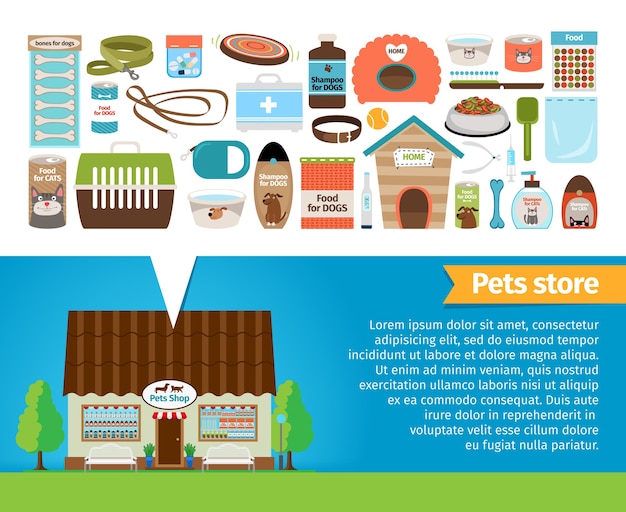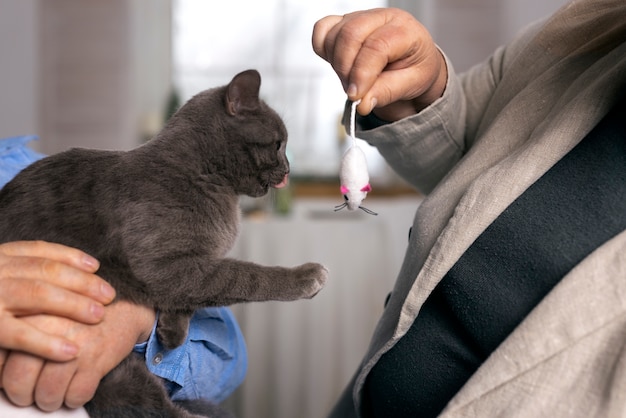Pet Emergency Preparedness: Create a Quick Action Plan

Pet Emergency Preparedness: Create a Quick Action Plan
When a pet emergency strikes, every second feels critical. Whether your dog ingests something toxic, your cat suddenly can’t breathe, or your pet is hit by a car, the moments that follow can be overwhelming. At VetCheck Pet Urgent Care Center - Lutz, our veterinary professionals understand how stressful these situations are for families in Lutz and surrounding communities. That’s why we want to help you build a pet emergency preparedness plan that empowers you to act quickly, confidently, and calmly when your furry companion needs urgent help.
In this comprehensive guide, we’ll walk you through the essentials of preparing for unexpected veterinary crises. You’ll learn how to recognize urgent warning signs, create an emergency action plan for pets that fits your household, and understand when immediate veterinary care is warranted. We’ll also cover practical steps to take before you even need to search for an emergency vet near me. Remember, at our 1809 Collier Parkway, Lutz, FL 33549 location, no appointment is needed; walk-ins are always welcome, and our doors are open when your regular veterinarian isn’t available. Our emergency veterinary care services ensure that your pet receives immediate attention when every minute counts.
Recognizing a Pet Emergency: Know the Signs and Act Fast
The first step in pet emergency preparedness is understanding what truly constitutes an emergency. Some situations are obvious, such as trauma from an accident or uncontrolled bleeding, but other scenarios can be more subtle and escalate quickly if not addressed.
Key Symptoms That Signal an Emergency
Warning signs to watch for in dogs and cats include sudden collapse or unconsciousness, difficulty breathing or persistent coughing, severe vomiting or diarrhea (especially with blood), inability to urinate or defecate, ingestion of known toxins like chocolate, medications, or household chemicals, seizures or loss of coordination, and visible wounds, lacerations, or broken bones. Additional symptoms such as swollen or painful abdomen, pale or blue gums, and rapid or weak pulse also require urgent attention.
Sometimes, pets may develop symptoms like excessive drooling, tremors, or behavior changes that seem subtle but are actually signs of poisoning or internal distress. In Lutz’s warm climate, heatstroke is another emergency risk, especially during the summer months when temperatures can soar. If your pet is panting excessively, unresponsive, or has hot, dry skin, this can become life-threatening in minutes.
Why Quick Recognition Matters
The sooner you recognize the signs of distress, the faster you can act. Immediate intervention can make the difference between a full recovery and lasting complications. For example, a pet showing signs of urinary blockage or difficulty breathing needs to be seen right away, as waiting even a few hours can have severe consequences. Having an emergency action plan for pets in Lutz means you’re more likely to recognize these issues promptly and seek the right care.
If you’re ever unsure, it’s always better to err on the side of caution. Our veterinary team encourages you to contact us or visit immediately if your pet’s symptoms seem unusual, severe, or rapidly worsening.
Understanding the Causes: Why Do Pet Emergencies Happen?
Pet emergencies can happen for a wide range of reasons, and some are more common in our area due to the environment and lifestyle of pets in Lutz and surrounding communities. Knowing the “why” behind emergencies can help you plan ahead and reduce risks.
Common Triggers of Veterinary Emergencies
Frequent causes of emergencies include accidental ingestion of toxic substances, trauma from falls or being struck by vehicles, sudden illnesses like pancreatitis or severe allergic reactions, and complications from underlying medical conditions such as diabetes or heart disease. In warmer climates, heatstroke and dehydration are significant seasonal risks, especially for active pets who spend time outdoors. Foreign object ingestion, such as swallowing toys or bones, often leads to blockages that require surgical intervention.
Additionally, pets may experience emergencies related to their breed or age. For example, older pets may be more prone to cardiac events or mobility issues, while younger, curious animals may be at higher risk for poisoning or injuries.
How Lutz’s Environment Influences Risk
Living in Lutz means pets are exposed to unique hazards, from local wildlife encounters to seasonal storms that can increase anxiety and trigger escape attempts. Lawn and garden chemicals, as well as certain plants common in Florida, are toxic if ingested. By understanding these regional risks, you can tailor your pet emergency preparedness plan to the specific dangers most likely to affect your pet.
Building Your Emergency Action Plan for Pets: What to Do Before and During a Crisis
Being prepared isn’t just about reacting; it’s about having a step-by-step plan before an emergency arises. A well-crafted emergency action plan for pets in Lutz can save precious time and help everyone in your household respond effectively.
What to Include in Your Pet Emergency Kit
Preparation starts with assembling essential items in one place. Your kit should contain your pet’s current medical records, recent photos for identification, a leash or carrier, medications, basic first aid supplies, and contact information for both your regular veterinarian and the nearest urgent care vet near me, such as VetCheck Pet Urgent Care Center - Lutz. It’s wise to include details about any chronic medical issues or allergies your pet has, as this information will be critical for emergency veterinarians.
Step-by-Step Emergency Response
When an emergency strikes, remaining calm is vital. Immediately secure your pet to prevent further injury or escape, then assess the situation by checking their breathing, responsiveness, and visible injuries. If your pet has ingested something potentially toxic, try to identify what and how much was consumed. Do not attempt home remedies unless instructed by a veterinary professional, as some actions can worsen the situation.
Call your urgent care veterinarian or bring your pet directly to our Lutz location; walk-ins are always welcome, and our veterinary professionals are ready to provide immediate care. If your pet is having a seizure or cannot breathe, transport them as safely and quickly as possible. For toxin ingestion, you can also reference toxicology and pet poison control services for further guidance.
Keeping Your Action Plan Accessible
Every member of your household should know where the emergency kit is stored and how to contact your local emergency vet. Keep our phone number, (813) 501-5811, saved in your phone and posted in a visible spot at home. Share your plan with pet sitters or neighbors who might care for your pet in your absence.
Preventing Pet Emergencies: Practical Steps for Lutz Families
While not all emergencies are avoidable, many can be prevented with simple, proactive measures. Taking these steps minimizes your risk and ensures your pet’s safety year-round.
Home Safety and Environmental Precautions
Pet-proof your home by storing cleaning products, medications, and potentially harmful foods out of reach. Secure trash bins, keep small objects that could be swallowed off the floor, and use gates or barriers when necessary. Outdoors, supervise your pet closely, especially in areas where wildlife or toxic plants are common. During hot, humid Florida days, ensure your pet has access to shade and fresh water at all times to prevent heat exhaustion.
Routine Care and Monitoring
Regular wellness checks and preventative care help catch health problems before they become emergencies. Stay current on vaccinations, parasite prevention, and dental care. Monitor your pet’s behavior closely so you can detect subtle changes that might signal illness. If your pet has a chronic condition, follow your veterinarian’s management plan precisely and ask for updates on what new symptoms to watch for.
For more information on how to prevent common emergencies, consider scheduling a wellness examination with our veterinary team. Prevention is always easier and less stressful than managing a crisis.
When to Seek Immediate Veterinary Care: Don’t Wait Until It’s Too Late
Knowing when to seek immediate help is one of the most important elements of pet emergency preparedness. Delay can mean the difference between a treatable issue and a life-threatening one.
Red Flags That Require Urgent Attention
You should seek emergency veterinary care in Lutz right away if your pet is experiencing any of the following: difficulty breathing, persistent vomiting or diarrhea with blood, inability to stand or walk, seizures, loss of consciousness, suspected poisoning, trauma, or any rapid decline in condition. Additionally, if your pet has visible wounds, swelling, or shows signs of severe pain, these are all clear indicators that urgent care is needed.
For situations involving toxin exposure, you can refer to reputable resources like the Pet Poison Help Line or the ASPCA Poison Control page for immediate advice while you prepare for transport. However, these resources are not substitutes for hands-on veterinary care. In cases of vomiting and diarrhea, prompt evaluation is key, and you can explore our emergency care for vomiting and diarrhea for more details.
Why Immediate Action Matters
Emergencies escalate rapidly, and time is often the most critical factor. VetCheck Pet Urgent Care Center - Lutz is open when your regular veterinarian isn’t; walk-ins are always welcome, and we prioritize your pet’s needs the moment you arrive. Our veterinary professionals are equipped to triage and treat a wide array of emergencies, from trauma to toxin ingestion.
If you ever have doubts about your pet’s condition, don’t wait. Bring your pet to our clinic or call our team for guidance. It’s always better to have a false alarm than to delay care in a true emergency.
Conclusion: Be Ready, Stay Calm, and Rely on Your Emergency Vet in Lutz
Pet emergencies are unpredictable, but your response doesn’t have to be. By preparing a pet emergency preparedness plan, understanding warning signs, and knowing when to seek help from an emergency veterinarian near me, you can protect your pet’s health and your family’s peace of mind.
VetCheck Pet Urgent Care Center - Lutz is committed to supporting local pet owners every step of the way. Our veterinary professionals are trained to handle everything from trauma to toxin exposure, and we’re available whenever you need immediate care. Remember, no appointment is needed; walk-ins are always welcome at our Lutz location. If you’re searching for the most trusted emergency vet near me or urgent care vet near me, our clinic stands ready to help.
Stay proactive by keeping our number (813) 501-5811 handy and sharing your emergency plan with everyone in your household. For preventive advice and regular wellness exams, explore our preventative veterinary care options. Your pet’s safety and wellbeing are our top priorities, and we’re honored to be your partner in pet emergency preparedness in Lutz.
If you have questions or need immediate help, don’t hesitate to drop by or call us now. We’re here for you and your pet—every hour, every day.



















